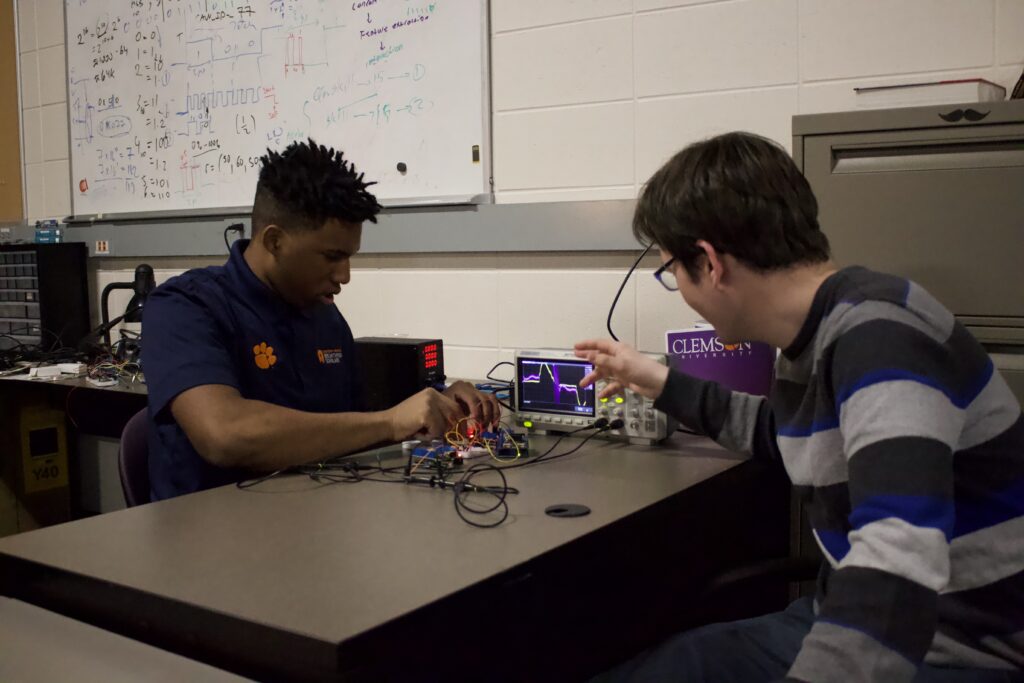For nearly 20 years, the Creative Inquiry + Undergraduate Research (CI) program has given tens of thousands of students access to team-based experiential learning opportunities alongside faculty mentors. During the semester, these projects are taken as a part of a student’s course load, but over the summer, students have the unique opportunity for a more intensive, full-time research experience through the Summer CI program. Thanks to support from the South Carolina legislature, more students are able to participate in Summer CI this year than ever before.
This year, 143 students from a variety of majors were selected to participate in the program, more than double the normal number of participants. The selection process for Summer CI is competitive, and participants are all nominated by faculty mentors before they apply by submitting a research proposal.
“Summer CI gives students a chance to fully immerse themselves in research that they initiated with their team members during the previous semesters and will continue into the next academic year,” said Barbara Speziale, director of Creative Inquiry + Undergraduate Research. “During the academic year, students manage to fit their research in with coursework demands, a necessary skill to prepare for jobs where they will be faced with multiple competing priorities. Summer CI gives them the luxury to entirely focus on their one project, thus allowing them to make considerable advances in the research.”

Experiential learning through programs such as Summer CI is a key component of the Clemson Elevate strategic plan, which aims to amplify academic success and deliver the number-one student experience in the nation.
Some examples of projects students are working on this summer include:
International STEM Experiences, a student and faculty international exchange experience with University of Agder (UiA) in in Kristiansand, Norway. Students and faculty from both UiA and Clemson work together on a variety of projects related to STEM education. Last year, the students developed and implanted an interactive environmental science and mathematics lesson set in the localized context of the Savannah River Watershed in South Carolina and the international context of Trøndelag, Norway. This summer’s project focuses on developing a curriculum related to the overlap of service learning and engineering education, with the goal of creating more globally focused and empathetic engineers.
“Leading this new and innovative course proved to be a rewarding experience … The students took ownership of their experience and cultivated a class culture that was reflective of collaborative learning, culture sharing, and curiosity,” said doctoral student Margaret Ann Bolick, Engineering and Science Education Teaching Scholar who helped lead the project.

Automotive Security and Privacy involves several projects related to vehicle safety and security. In one project, students are researching ways to add security to module computers inside cars to prevent hacking. The group is developing a small device that will monitor the network that connects to a car’s computer and will identify if an external source is attempting to hack into the network. Another project looks at people’s reaction times using a simulator to test responses to different driving conditions and scenarios and comparing those responses to self-driving vehicles. A third project examines the data transmitted by a car’s touchscreen and “infotainment” system and looks at which companies are collecting that data and how data collection practices align with companies’ privacy policies.
Host-Microbe Interactions in the Gastrointestinal Tract, which explores how different bacteria in the gastrointestinal (GI) tract impact human health and disease. This summer students will research the antibiotic resistance levels of certain species of Bacteroides and whether the use of certain carbohydrates impacts those resistance levels. Their work will help identify new therapeutics that could be used to modify GI bacteria in a targeted way to treat disease.
“I think that undergraduate research is absolutely vital for students. It not only allows them to further understand the process of scientific inquiry, but it also lets them see the application of material they learn in their classes,” said Kristi Whitehead, principal lecturer in biological sciences and faculty mentor of the project. “Perhaps most importantly, it allows them to actually be part of the scientific community.”
Get in touch and we will connect you with the author or another expert.
Or email us at news@clemson.edu

